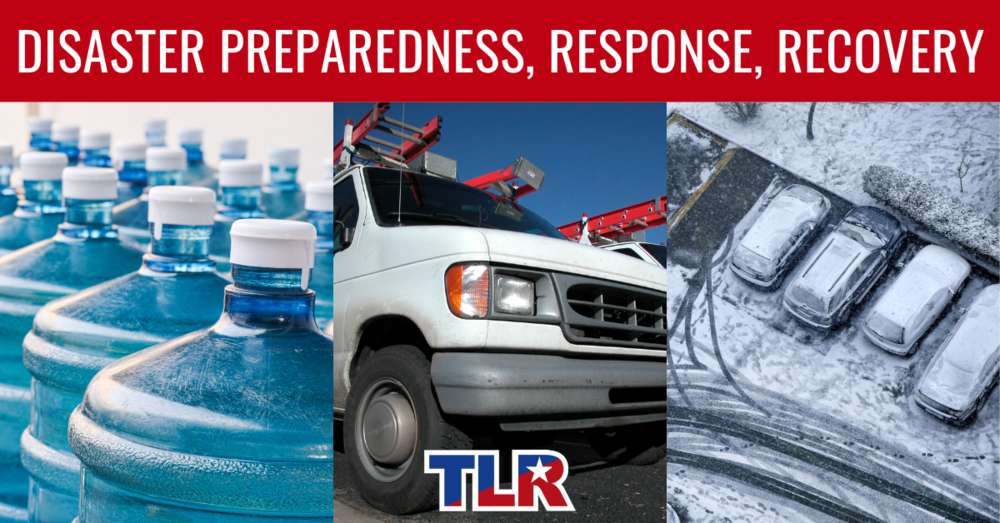
The pandemic and recent winter storms have highlighted a stark reality:
Commercial vehicles are essential for disaster preparedness, response and recovery.
Whether they’re carrying life-saving medicine, water supplies or critical fuel, or providing necessary services like plumbers and contractors, Texans depend on commercial vehicles.
But these commercial vehicles are targeted by personal injury trial lawyers across our state for abusive lawsuits. These aggressive plaintiff lawyers have developed an unfair strategy to maximize results in commercial vehicle lawsuits by presenting the jury with misleading evidence. In most of these lawsuits, the facts simply don’t support the size of the settlements and verdicts.
Ad after ad singles out trucks and company cars… any vehicle with a logo on it. These vehicles are villainized in court so plaintiff’s attorneys can come away with a big payday.
But when lives are at stake, when grocery store shelves are bare and gas pumps are empty, when pipes burst and repairs are required, we need commercial vehicles for our communities to function.
This played out in real-time across the Lone Star State during the winter storm. In one particularly poignant story, a professional driver for Atlas Delivery Services in Houston undertook a perilous, 197-mile trip to San Antonio in the height of the storm to deliver life-saving medication to an 18-month-old heart transplant patient. Without it, her body would have rejected her new heart.
“Just doing my job,” was his reply when asked why he’d done it.
But, in fact, he and his company acted courageously. The legal system is brimming with examples of commercial vehicles being held liable for bad-weather accidents, even when the accident wasn’t their driver’s fault.
East Texas-based fuel hauler Duncan Thompson Transportation wrestled with the risk of being in the wrong place at the wrong time, ultimately deciding the danger of being held liable for an accident was too high. The company’s general manager, Lincoln Thompson, shared their experience:
“We parked all 19 of our trucks for a week. At the beginning, conditions were too terrible. We have over 100 backlogged loads for 19 trucks to handle. We estimate it will take us two weeks to get our head above water.
We had to make some heartbreaking decisions. We were contacted by a fire department and an electric power plant in dire need of fuel. I had to tell them no. If something were to happen, a lawyer or jury or judge wouldn’t care that we were trying to take care of our communities. They would say it was too dangerous to be out and we were responsible. Our insurance rates would skyrocket, potentially putting us out of business.
The very thought angered me. My hands were tied. My employees and I wanted to help, but couldn’t for risk of litigation.
So Texans suffered directly during this storm because of it.”
Texas is less safe, less prepared and less resilient in recovery without commercial vehicles. Stopping abusive lawsuits against them will make or break our ability to handle the next natural disaster our state faces.
The Legislature is poised to address this issue with a combination of bills that clarify the rules for how these lawsuits are tried, making them more uniform and consistent across the state, and addressing inflated medical damages.
TLR and the Keep Texas Trucking Coalition strongly support Senate Bills 17 and 207 and House Bills 19 and 1617, and will continue to keep you updated on their progress. You can support our efforts by contacting your lawmakers and urging them to support these bills.
